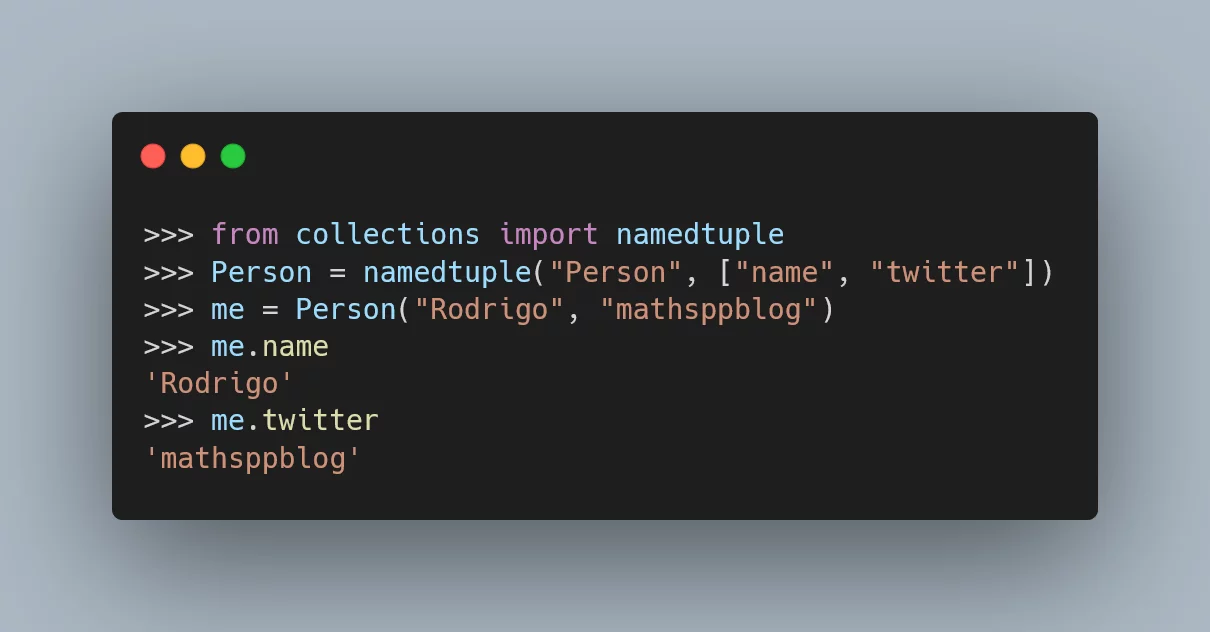
namedtuple
The module
collections
is a gold mine of useful Python tools,
and one of those tools is the namedtuple.
A named tuple is like a tuple, with the added functionality that you can access the contents of the tuple by name, instead of just by position.
For example, the tuple
>>> me = ("Rodrigo", "mathsppblog")can represent me, in the sense that me[0] is my first name and me[1] is my Twitter handle.
If me were a named tuple, I would not have to remember the order of the items inside the tuple,
I could just do something like
>>> me.name
'Rodrigo'
>>> me.twitter
'mathsppblog'Of course you could also do this with a class:
class Person:
def __init__(self, name, twitter):
self.name = name
self.twitter = twitterThis also works, but that's also more work!
How to create a namedtuple
So, how do you create a namedtuple?
After the appropriate imports, you just need to call the factory function namedtuple:
>>> from collections import namedtuple
>>> Person = namedtuple("Person", ["name", "twitter"])
>>> me = Person("Rodrigo", "mathsppblog")
>>> me.name
'Rodrigo'
>>> me.twitter
'mathsppblog'
>>> me[1]
'mathsppblog'That's all it takes!
Reading the docs will show you how powerful named tuples can be, and even shows two nice use cases for them. I'll reproduce one here.
Suppose you have the following CSV file twitter_people.csv:
Rodrigo,mathsppblog
Mike,driscollis
Will,willmcguganYou want to read this data in, and use this data to build Person named tuples like the named tuple me above.
By using the module csv (to read the CSV data) and the _make function of the named tuple, this is possible:
>>> from collections import namedtuple
>>> Person = namedtuple("Person", ["name", "twitter"])
>>> import csv
>>> with open("twitter_people.csv", "r") as f:
... reader = csv.reader(f)
... for person in map(Person._make, reader):
... print(f"{person.name} is on Twitter @{person.twitter}!")
...
Rodrigo is on Twitter @mathsppblog!
Mike is on Twitter @driscollis!
Will is on Twitter @willmcgugan!That's it for now! Stay tuned and I'll see you around!
Become the smartest Python 🐍 developer in the room 🚀
Every Monday, you'll get a Python deep dive that unpacks a topic with analogies, diagrams, and code examples so you can write clearer, faster, and more idiomatic code.
References
- Python 3 Docs, The Python Standard Library,
collections.namedtuple, https://docs.python.org/3/library/collections.html#collections.namedtuple [last accessed 17-01-2022];
